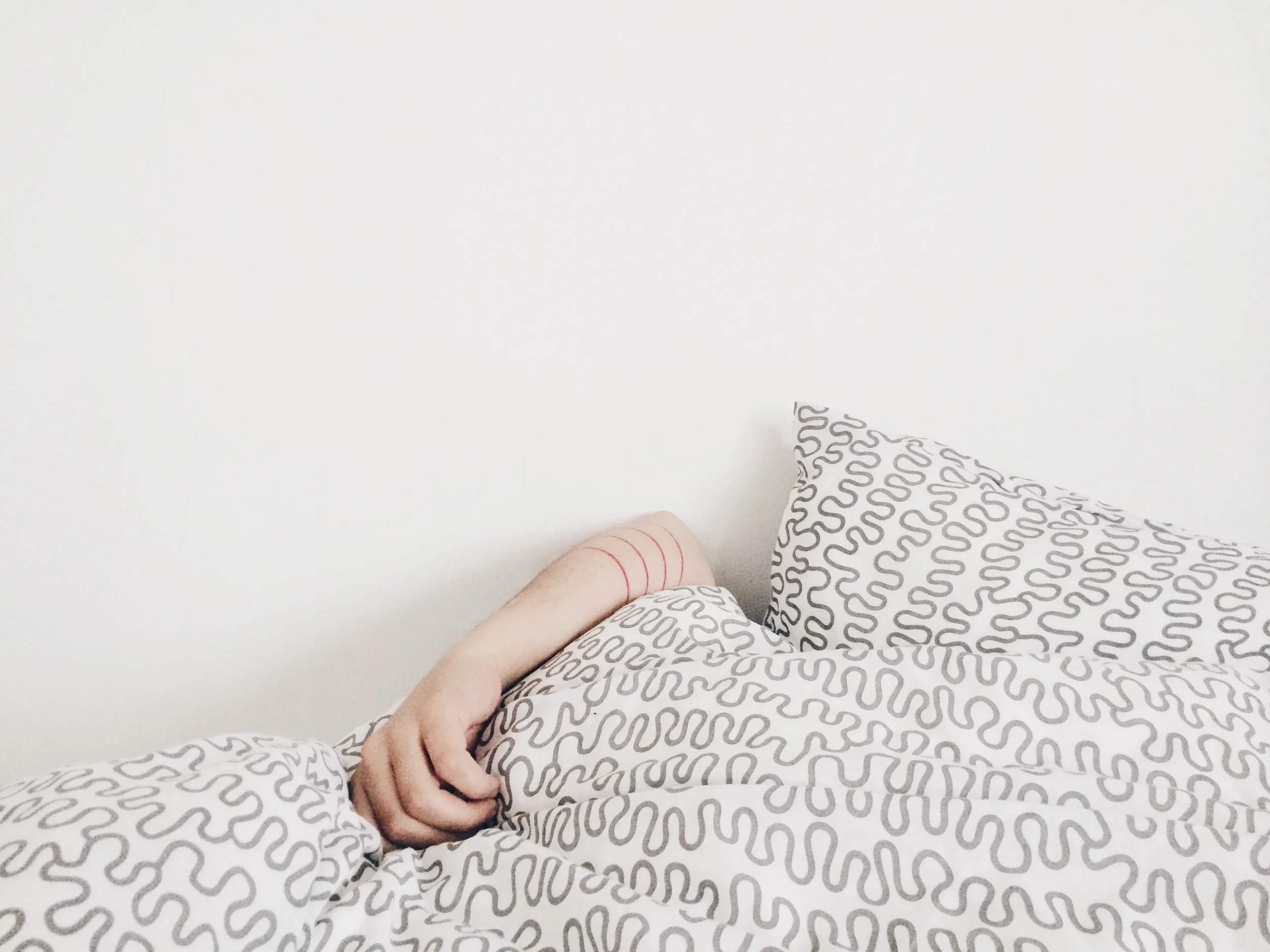This week is National Sleep Awareness Week, a movement organized by the National Sleep Foundation (NSF) to improve Americans’ sleep health before we all lose an hour of sleep this Saturday night for daylight savings. A recent study from the CDC found that even seemingly innocuous factors such as employment status, education level, marital status, and where you live could be correlated with how long and how well you are sleeping. They also reported that over a third of U.S. adults are not getting enough sleep.
We want to do something about that. So, in support of the NSF’s mission (#7Days4BetterSleep), we would like to share some of the best tips collected from studies in sleep research for improving the quality of your sleep, which will ultimately lead to an improvement in your quality of life. From changing your daily routine to talking with your doctor, we hope this information will help you achieve a better night’s sleep.
Train Your Brain to Sleep Better
Current sleep research offers several simple, daily habits you can adopt in order to improve your sleep health. To start, try waking up at the same time every day (including weekends) in order to keep your brain and body on a consistent rhythm and to train yourself to fall asleep and wake up at the appropriate times. Also, make sure you fully wake up–which includes getting out of bed–the first time your alarm goes off, instead of hitting the snooze button. Snoozing can confuse your brain, interfere with your sleep/wake rhythm, and leave you feeling more tired and groggy later on.
During the day, it’s beneficial for your sleep to get some sunshine in order to strengthen your brain’s sleep/wake rhythm and at least 30 minutes of exercise to help you relieve stress. This will give you energy during the day while ensuring that you will be tired enough to fall asleep at bedtime. You should also avoid drinking caffeine too late in the afternoon, which can stay in your system and affect your brain well into the night.
In the hours before going to bed, scientists recommend avoiding eating large meals, exercising heavily, drinking alcohol, checking email or social media, and using any devices with bright, “blue-light” screens–such as the TV, laptop, smartphone. All of these activities too close to bedtime keep you wired by interfering with your brain’s ability to produce the chemicals that will enable you to easily fall and stay asleep. Instead, you can read a good book (preferably fiction), write down your thoughts in a journal, lightly stretch, or even meditate in the time right before you intend on falling asleep. If you go to bed but cannot fall asleep, try not to force yourself into sleep– it will only further keep your mind active. Rather, get out of bed, and try one of these recommended activities for 20 minutes. Then, when you feel tired, go back to bed and let yourself drift off to sleep–it will be much easier.
When Good Sleep Habits Are Not Enough
Hopefully, by integrating these tips into your daily routine, you will notice yourself falling asleep faster, sleeping more soundly, and waking up feeling more refreshed. However, it is possible that implementing all of these habits may not totally improve the quality of your sleep. Many people can not completely control their sleep health with changes in behavior, and what’s worse–they may have no idea that their sleep is even being disturbed. Unfortunately, sleep disorders are an unnoticed threat in our society, simply because when people are asleep, they have no way of noticing the symptoms they are experiencing. One of the most prevalent of these conditions is obstructive sleep apnea or OSA.
What is Obstructive Sleep Apnea?
OSA is typically caused by a blockage of the airway when the soft tissue in the rear of the throat collapses during sleep. It is closely related to snoring, in fact– OSA is often characterized by very loud snoring, followed by silence and then a gasp or choking sound, caused by the closing and reopening of the airway. While those suffering rarely notice these pauses in breath occurring (sometimes hundreds of times a night), their partners are often awakened by these events, which prompts a large portion of OSA sufferers to speak with their doctor and get diagnosed.
OSA takes a significantly negative toll on the daily lives of those suffering from the condition, as well as their partners. Its harm includes all of the damaging side effects of lack of sleep but combines the ill effects of repeated restriction of oxygen to the brain. These symptoms include daily excessive tiredness, mental fogginess, memory impairment, irritability, and headaches. As a result, it has been shown to also increase the risk of gaining weight, being involved in an automobile accident, and underperforming at work.
Unfortunately, OSA also negatively affects the long-term health of its sufferers. If this condition goes unnoticed or untreated, it causes or contributes to a host of serious health problems, including chronic fatigue, high blood pressure, cardiovascular disease, metabolic disease, stroke, and early-onset cognitive decline. It has been estimated that more than 25 million Americans are suffering from undiagnosed OSA.
How Do I Know if I have OSA?
The best way to prevent or treat this disorder is to talk to your doctor and find out if you need a prescription for treatment. Only a medical professional can accurately obtain the information necessary to make a diagnosis and get you on a path to sleeping and feeling better. However, our sleep experts recommend a popular screening quiz, called the STOPBang Questionnaire, for anyone wondering if they might be at risk for OSA.
You can take this short quiz here: http://bit.ly/stopbang
If your score indicates a moderate to high risk of OSA, we encourage you to talk to your doctor about being tested.
Getting tested for OSA typically involves talking to your doctor and then being referred to a sleep specialist, who will conduct a sleep test. Your breathing and blood oxygen levels will be monitored while you sleep. This overnight test is either done in a hotel, a lab, or at home. The results of this testing will inform if treatment is needed and what the prescription for treatment should be. The most common and effective treatment for OSA is CPAP or Continuous Positive Airway Pressure. This therapy requires wearing a mask over your nose and mouth while you sleep that is connected by a hose to a machine which provides you with enough airflow to keep your airway open throughout the night. This airflow keeps you breathing normally, and maintains a healthy flow of oxygen into your body and brain. Sadly, only about 50% of patients prescribed CPAP therapy are still compliant with their treatment one year later, a troubling statistic that we at Airing are working to improve.
Improve Your Sleep & Pass it On
We hope you will celebrate National Sleep Awareness Week by introducing some of the habits we’ve recommended, spreading the word about sleep health, and talking to your doctor about OSA. Sleep health is paramount to living a long, healthy, and happy life, yet millions of us are not getting enough sleep. Beyond that, millions of people suffering from OSA remain unaware, untested, untreated, or noncompliant. We want to end this epidemic of poor sleep by increasing public awareness of OSA and overall sleep health. And, we hope you will join us in making this change happen.
THE AIRING EQUITY CROWDFUNDING CAMPAIGN IS LIVE ON WEFUNDER.COM
CLICK TO INVEST TODAY!

